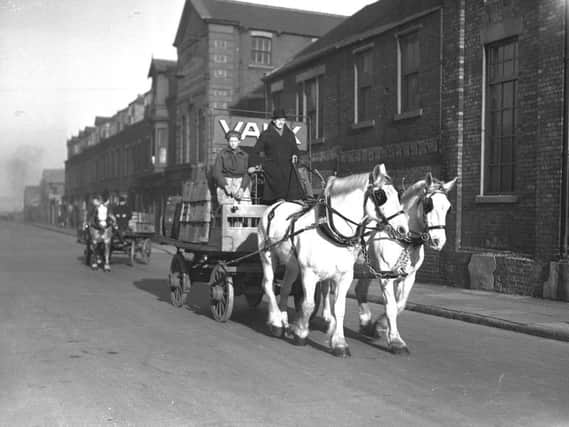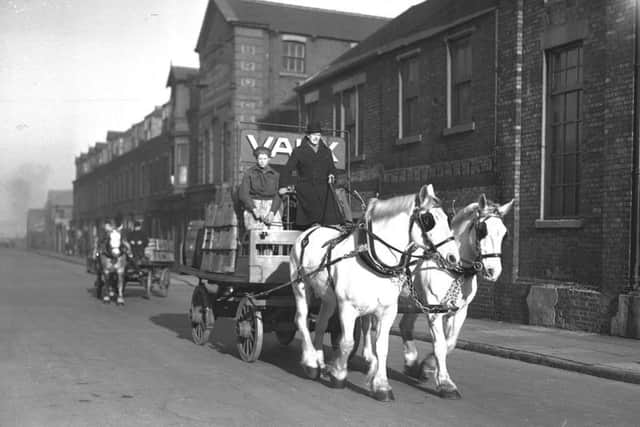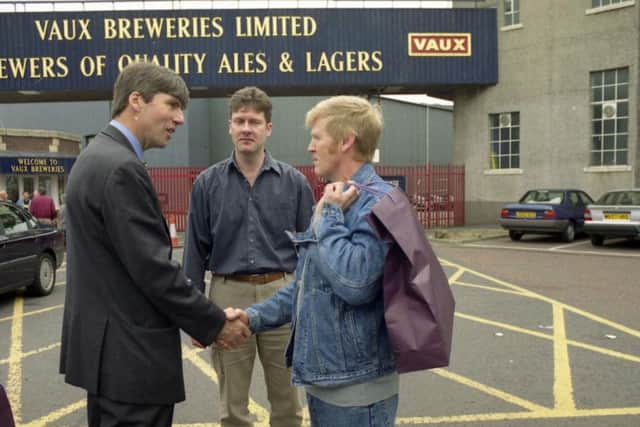Timeline: The history of Sunderland's Vaux brewery as it prepares for city rebirth


Indeed, the brand served as the team's shirt sponsor from the mid-1980s until the company's sad demise in 1999.
Vaux's trademark dray and horses, of course, also provided decades of publicity for the firm with their regular pilgrimages to its chain of pubs around the city.


Advertisement
Hide AdAdvertisement
Hide AdIn among their deliveries were established beers such as Double Maxim and Samson as well as younger pretenders such as Lambton's.
Then there were the Castle Street headquarters themselves dominating Sunderland's central skyline.
Related content: Legendary Vaux brewing name set for 2019 Sunderland return
The brewery was a major employer in the city for almost two centuries following its formation by Cuthbert Vaux in 1806.


Advertisement
Hide AdAdvertisement
Hide AdWhile the firm's early days, if you excuse the beer pun, are a little cloudy, the company is known to have been based at Matlock Street and Union Street before moving to its final home around 1875.
With the founding Cuthbert's grandson, also Cuthbert Vaux, now in charge, Frank Nicholson joined as manger in 1898 to begin a link between the Nicholson family and Vaux which would last until the closure.
So what went wrong?
Despite the company's brewing arm still making a sizeable £50m annual profit, financiers in the City of London had advised the firm to cease production and concentrate its efforts on its estate of pubs and hotels.
Advertisement
Hide AdAdvertisement
Hide AdAfter a prospective management buyout was turned down, around 700 jobs were lost amid emotional scenes as the brewery closed on July 2, 1999.
The resulting reorganisation saw the Vaux name quickly disappear from Sunderland’s buildings with the business becoming Swallow Inns and Restaurants.This in itself was soon bought by Whitbread Breweries.
While Double Maxim and Samson were quickly resurrected by Maxim Brewery, formed by former Vaux directors and now operating inside the city's boundaries at Rainton Bridge, attention turned to the former brewery land itself.
Advertisement
Hide AdAdvertisement
Hide AdSupermarket giant Tesco bought the 26-acre site in 2001 to trigger a decade of legal wrangling over its future use.
It was eventually purchased in 2011 by Sunderland City Council with Tesco deciding instead to build a new branch north of the water in Roker Avenue.
The authority is now planning to move its own staff from its ageing Burdon Road premises by constructing a new £40m public sector hub on the former brewery land.
It also hopes to attract private businesses to what is still known as the Vaux site.
Could one of them eventually be the reborn brewery itself?